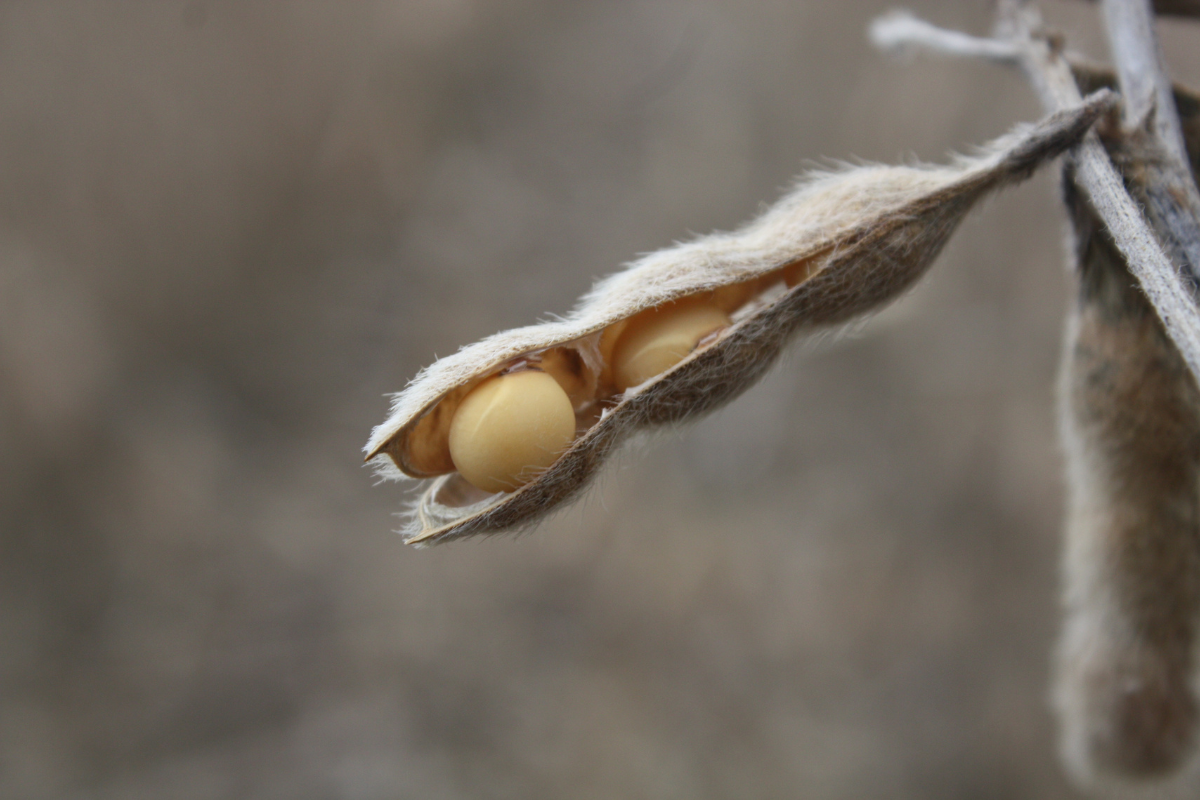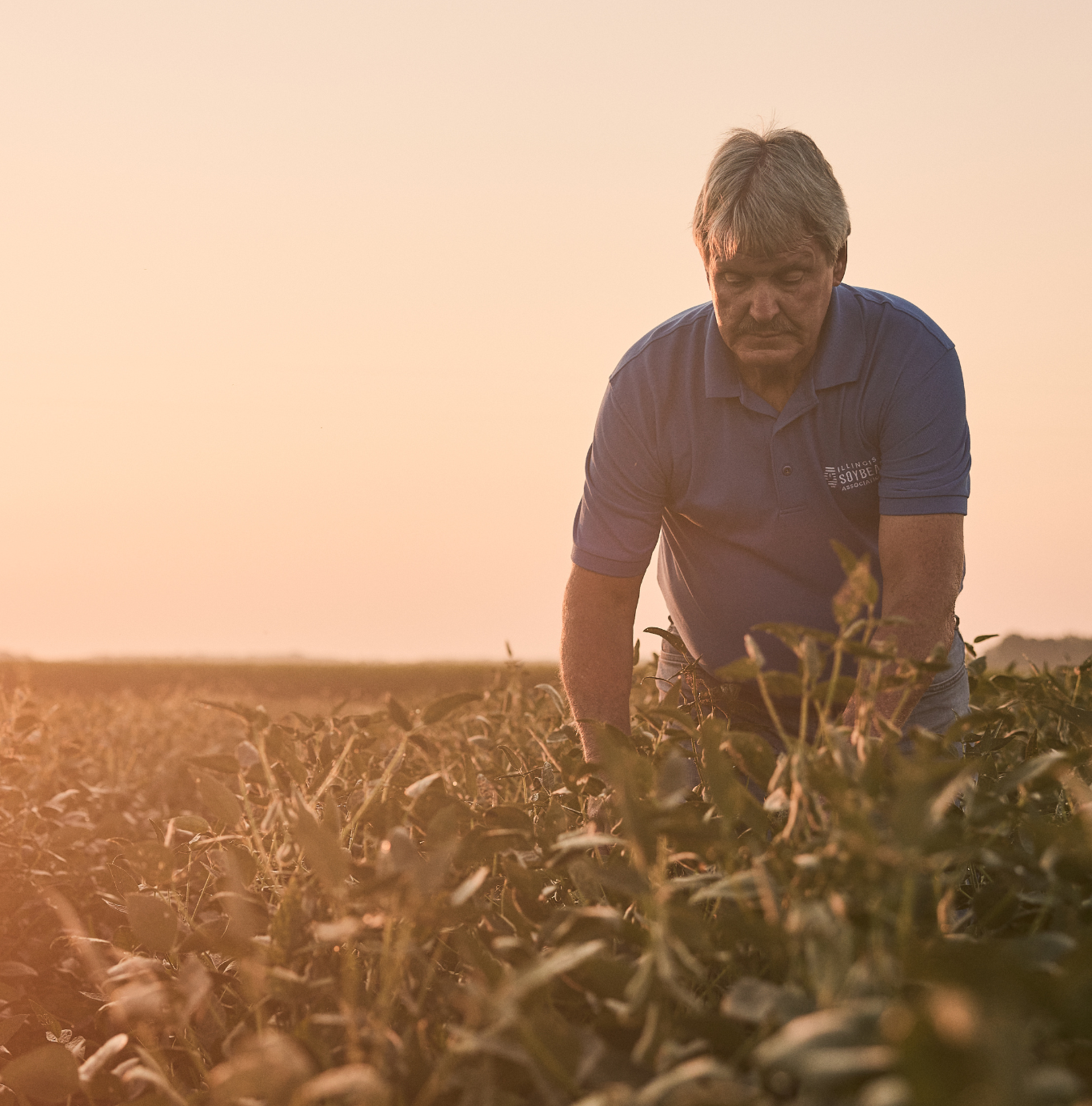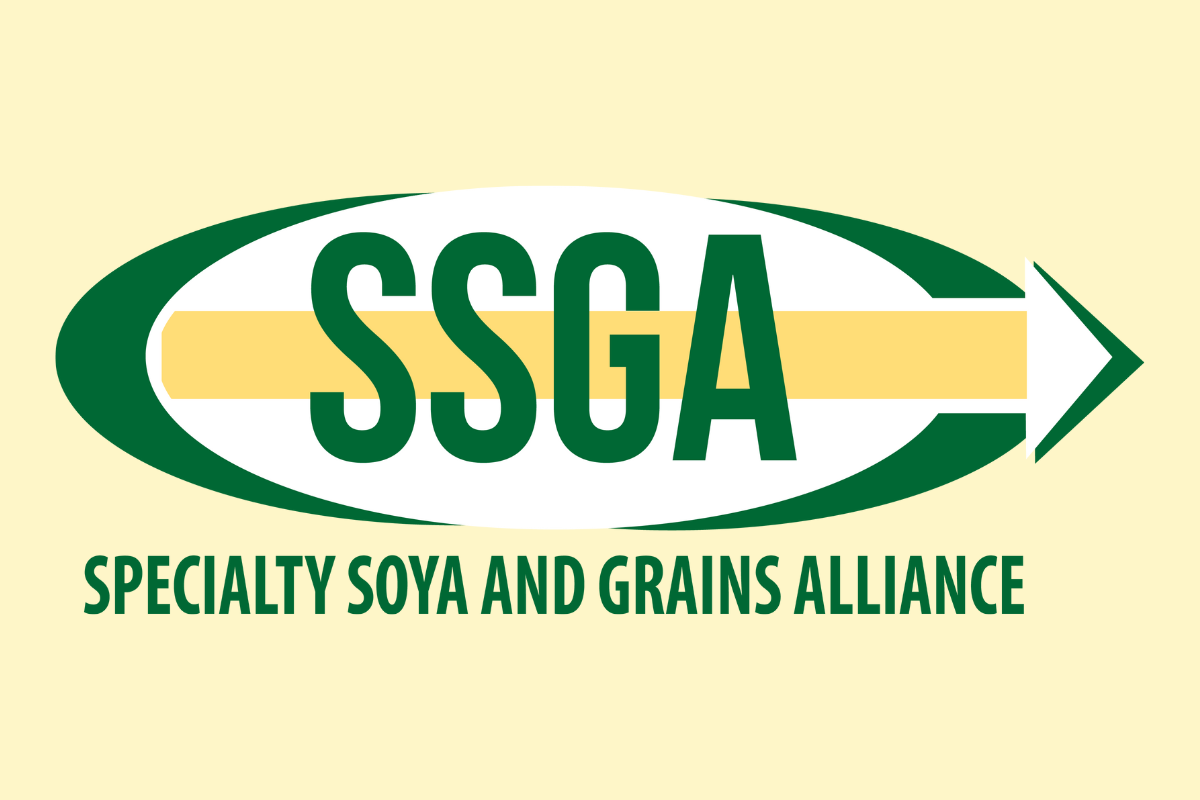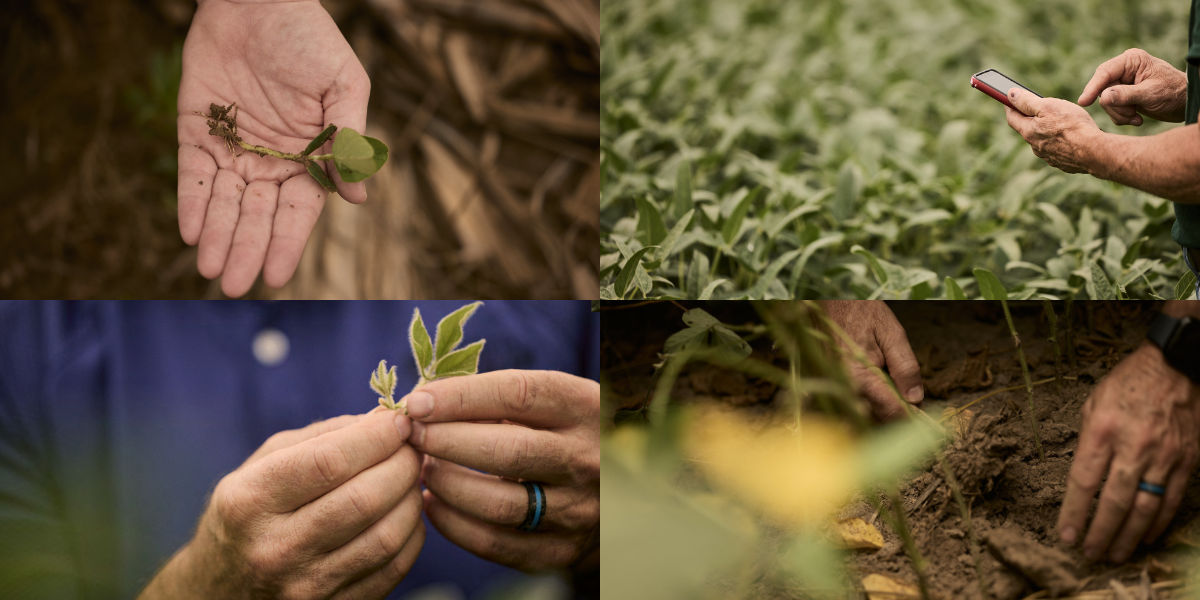Identifying genes for useful traits helps breeders develop improved varieties. Better tools pave the way for better decisions, and rapidly developing technology delivers new ways to raise our crops while sustaining the natural environment.
But what is the secret? How do the most successful soybean seeds go from lab to field?
Global demand for specialty and non-GMO soybeans is on the rise in places such as Japan, South Korea and the European Union. Thanks to a longtime partnership between Illinois Soybean Association (ISA) and Specialty Soya and Grains Alliance (SSGA), Illinois soybean farmers—the top producers of specialty soy in the U.S.—are well positioned to grow their share of supply to this growing market.
ISA’s collaboration began six years ago when SSGA was formed. The group brings together grain and oilseed producers, processors, suppliers and allies in transportation to build, grow and sustain a reliable system for soy and other grains around the world. SSGA also receives support from the soybean checkoffs of Michigan, Minnesota, Missouri, North Dakota, Ohio, South Dakota and Wisconsin.
This year, the partnership is focused on three key areas:
- Continuing to differentiate specialty Illinois soybeans via SSGA’s U.S. Identity Preserved (IP) Assurance Plan for premium prices and to counterbalance tariffs or economic challenges
- Engaging with more international customers to keep growing demand abroad
- Building out domestic transportation systems that provide the backbone to trade
Illinois soybean farmers will benefit from SSGA’s partnership thanks to the team’s extensive expertise in global trade and international demand. They also serve as the voice of shippers and farmers, providing them and collaborators such as ISA with access to key markets.

IP Soybean Boom
Several factors are driving continued strong demand for IP and specialty soybeans. Collectively, they reflect a market that’s become more focused on product quality, more stringent in its documentation and reporting requirements, and more receptive to paying top dollar for sustainable soy.
Here’s a closer look at some of the biggest trends lifting non-GMO and IP soybeans in the U.S. and abroad:
- Premium Prices: Farmers can often get a higher price for specialty soy compared to conventional commodity soy. That profitability depends on carefully segregating their crop to avoid commingling with other grain and on managing logistics efficiently.
- Contract Buying: We encourage customers to consider forward contracting versus spot purchasing to ensure they are getting the product they request. This also allows farmers to be more strategic about planting.
- Supply Chain Shifts: There’s increasing discussion about ways to build and protect dedicated supply chains for specialty soy to avoid commingling from storage to transportation.
- Sustainability and Traceability: Today, more buyers are looking to purchase soybeans that come with sustainability certifications and verifiable traceability. And while climate policies and carbon footprint considerations might push some buyers to source soy closer to home, programs such as the U.S. Soy Sustainability Assurance Protocol (SSAP) ensure American farmers are meeting the expectation of sustainability.
- Policy and Trade: Regulations are constantly evolving, meaning farmers should stay engaged with organizations such as ISA, which monitors trade agreements, labeling laws and sustainability requirements to help farmers stay ahead of potential shifts.
With multiple layers and nuances adding complexity to the marketplace, ISA’s partnership with SSGA is invaluable for helping farmers understand these dynamics more deeply and ride the demand curve.
IP Focus Improves Quality
ISA’s work with SSGA means Illinois soybean farmers are increasingly positioned to serve a wider range of customer needs. Among the most pressing differentiators is soy quality.
Exporters and associations can differentiate soybeans produced in the U.S. by participating in the U.S. IP Assurance Plan, which SSGA created and manages. The program identifies and traces soy throughout the value chain to deliver the high-quality soybeans customers desire. It also provides documentation, ensuring customers get single-origin products from the U.S. within the specifications they request.
Identity preserved crops can also be delivered in smaller shipments, a benefit to customers unable to handle a full bulk vessel.
Engage Future Markets
Illinois farmers export 60% of their soybeans to global markets. Yet producing only a single product—such as conventional GM soybeans alone— could be risky if the demand picture changes.
But because Illinois is the top-producing state of non-GMO and specialty soy in the U.S., farmers can meet the demand of diverse buyers and plug into those global channels with a variety of products to offer. ISA’s investments in building and maintaining relationships with mature and developing markets also means that if economic headwinds emerge in one market, supplies can be redirected to other markets where those conditions aren’t present.
It’s also important to remember that today’s buyer portfolio is always subject to change. For example, a growing roster of emerging-market customers in Africa, Latin America and Southeast Asia are likely to play an increasingly important role in the purchase of U.S. soy.
Illinois farmers interested in studying these and other dynamics are encouraged to follow along with ISA’s Market Development department, which provides regular updates on global market conditions, its SSGA partnership and much more.
To learn about recent international travels, check out project highlights and catch up on the team’s latest activities, head over to the Bean There Blog. Then, sign up for the Market Development team’s monthly email for market insights, trends and farmer updates. For details on how to sign up, email ISA Communications Manager Olivia Key at olivia.key@ilsoy.org.
Farmers can also take this a step further and explore ways to grow specialty and non-GMO soybeans, either for the first time or in an expanded capacity. Get started by attending SSGA meetings, contacting local merchandisers about specialty and non-GMO contracts, or reaching out to ISA Market Development staff.
We live in a dynamic world in which commodity markets are constantly changing. But one thing is certain: As consumer preferences change, buyers will seek value-enhanced crops to market their products at a premium. Identity preservation separates U.S. soybeans at large—and Illinois soybeans in particular— from their competitors, signifying the premium quality our farmers are committed to producing.
Here at ISA, we’ll continue working with SSGA and other partners to expand these markets and forge new buying relationships that can secure a bright future for Illinois farmers.
Fast Facts About SSGA
Who: Specialty Soya and Grains Alliance (SSGA)
What: The business alliance of identity-preserved (IP) U.S. agriculture
When: Founded in 2019 via the merger of Midwest Shippers Association and Northern Food Grade Soybean Association
Where: Headquartered in Mankato, Minn., and supported by Illinois Soybean Association and the soy checkoffs of Michigan, Minnesota, Missouri, North Dakota, Ohio, South Dakota and Wisconsin.
Why: The organization facilitates efforts to “build, grow and sustain a reliable supply chain that ensures integrity of the end product, with a commitment to quality, stewardship and innovation.”
Learn More: soyagrainsalliance.org.
Recent Articles
In this issue of Illinois Field & Bean Magazine, we're looking forward to the 2026 Soybean Summit.
By
Sulfur is essential for plant growth, yet it's only just becoming a common addition to fertilizer management plans. This shift is no coincidence.
By Darby Danzl, ISA Regional Technical Agronomist


